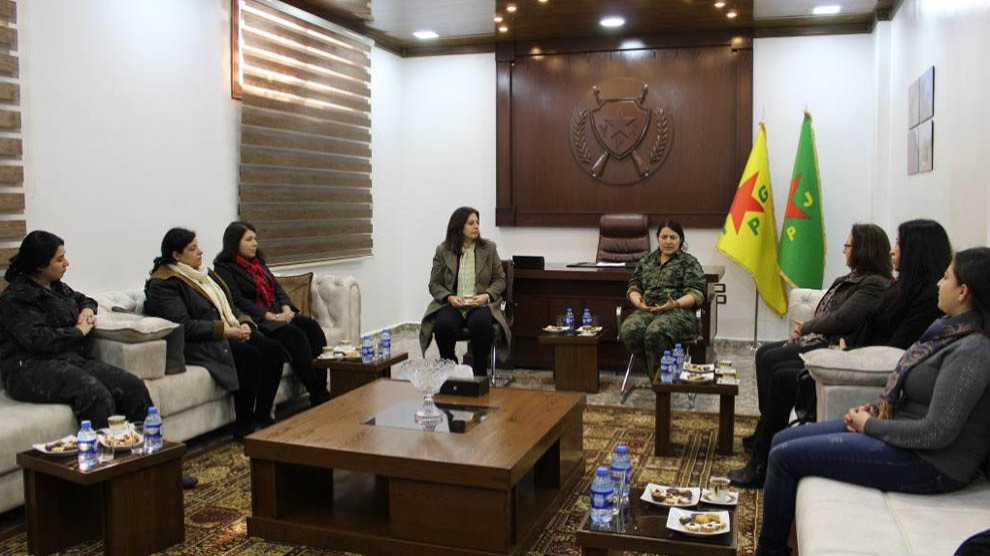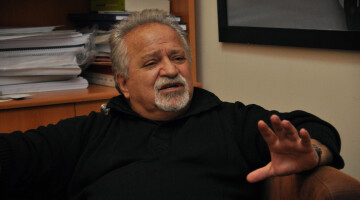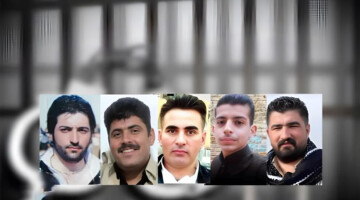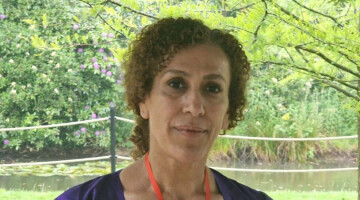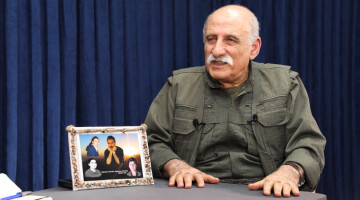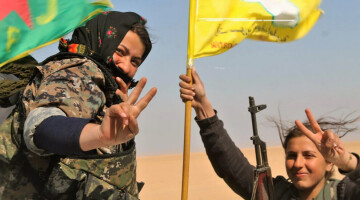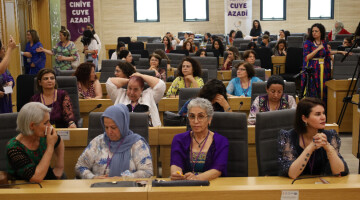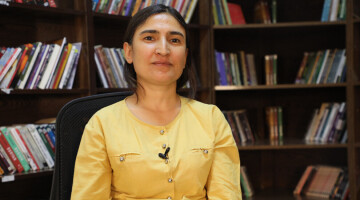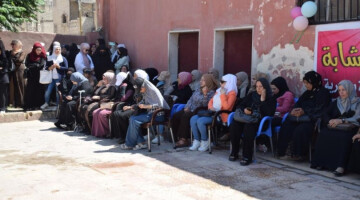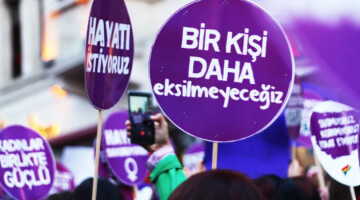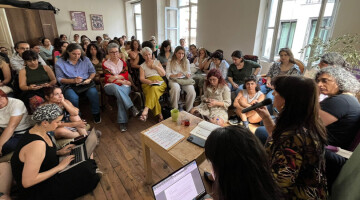A meeting of a delegation of the Coordination of the Women's Council of North and East Syria (Meclisa Jin a Bakur û Rojhilatê Sûriyê) and representatives of the Women's Defense Units YPJ (Yekîneyên Parastina Jin) took place in the north-east Syrian city of Qamishlo on Sunday. The delegation was received by YPJ Spokeswoman Nesrin Abdullah and YPJ Commander Axîn Nûcan in the premises of the Public Relations Office. During the meeting there was an exchange about the political and military activities of the women's structures and a discussion about perspectives for future work.
Even though the media do not report much about it, Kurdish women in Syria have been waging an intense struggle against the Baath regime for more than three decades. This long experience has also influenced other women in the region. In the course of the "Arab Spring", women in Rojava have begun to build democratic self-governing structures in all areas of society from 2012 onwards, in order to free themselves from decades of oppression by the Baath regime.
Rojava's guiding principle: The "Third Way”
The guiding principle of Rojava is the "Third Way", which is conceptualized in democratic confederalism. This is a political and social model that strives for equal rights for ethnic groups, religions and genders. Democratic confederalism was developed by Abdullah Öcalan, the mastermind of the Kurdish freedom movement, who has been imprisoned in isolation on the Turkish prison island of Imrali since February 1999, as a proposal for peaceful coexistence of peoples and religions in the Middle East. It is based on self-government, organized through communes and councils in which all people living in the region are represented. Decisions are thus self-determined and made from below. There is a quota of at least 40 percent for women in the administrations of all everyday structures. In addition, women organise themselves in autonomous structures. Democratic confederalism is thus oriented towards the needs of society and also plays a functional role as a form of social organisation, since it thus forms the basis for development. As such, the project is unique in the world.

Turkish invasion - Targeted attack on women
With the war of aggression against the region started by Turkey together with jihadist militias on October 9, 2019, this project is once again threatened. The invasion not only involves the displacement of the civilian population, the destruction of the region and the plundering of all the resources of Rojava. Ankara's breach of international law is also understood as a direct attack on women's right to exist and on the women's revolution.
"Let us only think of Hevrîn Xelef," said Ebir Hesaf of the Women's Council. The Kurdish politician and general secretary of the Future Party of Syria was captured, tortured and finally shot dead on October 12, 2019, the third day of the invasion, during an ambush by an Islamist militia supported by Turkey. Her mother, after seeing the remains of Hevrîn Xelef, said her daughter's body, marked by traces of torture, was dragged by the hair across the floor for so long that the rind of her head came off her skull.
Hevrîn Xelef's attention and commitment was directed towards the interests of all population groups in Syria and a democratic renewal of the country. The Turkish state celebrated her death as a "successful operation to neutralize a terrorist".
NATO member Turkey in jihad
Turkey as the second largest NATO army is in jihad in Northern Syria, it is waging a so-called "holy war". Women are regarded by the fundamentalist aggressors as legitimate prey in the fight against the "infidels". In the cities of Serêkaniyê (Ras al-Ain) and Girê Spî (Tal Abyad), whose occupation by Russia and the U.S. was sanctioned at the end of October, Sharia rules prevail under Turkish flags. Women are once again forced to accept the role of slaves as their fate and submit to the patriarchal structures.
Women are pioneers of social change
"In the person of Hevrîn and women like Mother Aqîde or YPJ fighter Amara Rênas, free will of women was attacked," Hesaf said.
“The aim of combating women's resistance is to try to force violence against femininity. It is precisely for this reason that it is important to unite women under the umbrella of the Women's Council,” said YPJ Commander Axîn Nûcan and continued; “The women of Rojava are a dynamic force. People around the world are impressed and inspired by their resistance. Even in times of attacks on the region, women could continue to advance their organisation.”
YPJ Spokeswoman Nesrin Abdullah recalled the many successes of women in Northern Syria, especially their role in the fight that ended the territorial rule of the ISIS. But it was not only in military and political terms that they offered selfless resistance and strengthened their autonomous self-organization for women's liberation, thus consolidating the basis of a free society. There were positive developments in all areas of life that paved the way out of the impasses into which the narrow view of the old system, marked by patriarchal power, had led. "In this sense, no force will succeed in breaking the will of these women," said Abdullah.
RELATED NEWS:

